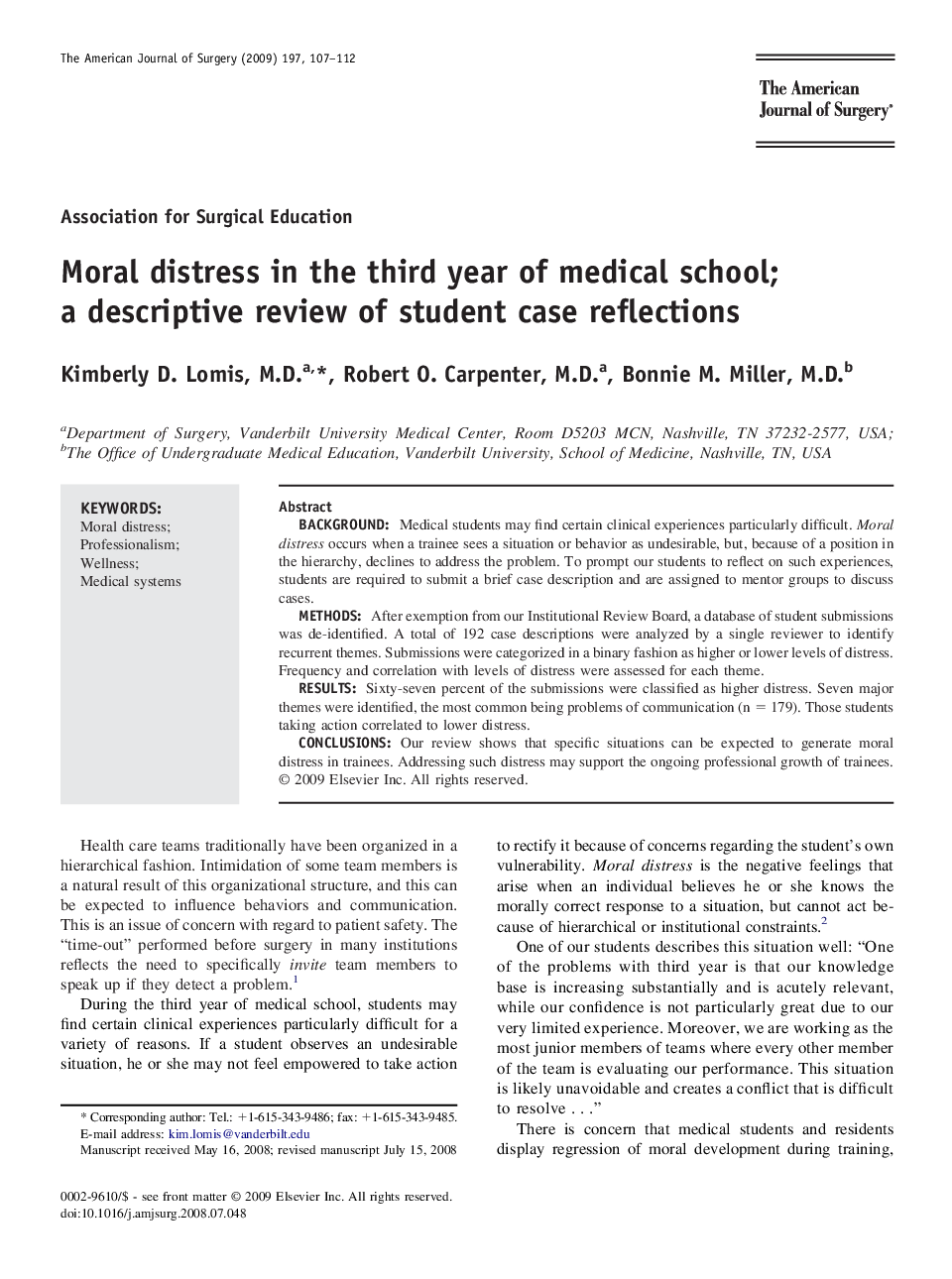| Article ID | Journal | Published Year | Pages | File Type |
|---|---|---|---|---|
| 4280574 | The American Journal of Surgery | 2009 | 6 Pages |
BackgroundMedical students may find certain clinical experiences particularly difficult. Moral distress occurs when a trainee sees a situation or behavior as undesirable, but, because of a position in the hierarchy, declines to address the problem. To prompt our students to reflect on such experiences, students are required to submit a brief case description and are assigned to mentor groups to discuss cases.MethodsAfter exemption from our Institutional Review Board, a database of student submissions was de-identified. A total of 192 case descriptions were analyzed by a single reviewer to identify recurrent themes. Submissions were categorized in a binary fashion as higher or lower levels of distress. Frequency and correlation with levels of distress were assessed for each theme.ResultsSixty-seven percent of the submissions were classified as higher distress. Seven major themes were identified, the most common being problems of communication (n = 179). Those students taking action correlated to lower distress.ConclusionsOur review shows that specific situations can be expected to generate moral distress in trainees. Addressing such distress may support the ongoing professional growth of trainees.
